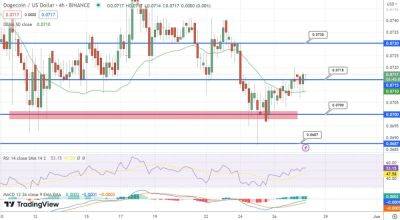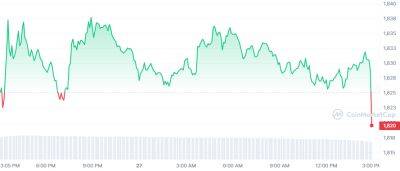China’s war chest: how Beijing is using its currency to insulate against future sanctions
F or more than a decade, Beijing has been trying to reduce its reliance on the dollar, motivated by risks emerging from the US economy – such as the financial crash of 2008 – and the desire to boost its own sphere of influence.
But in the last year, a drive to insulate China’s economy from dollar-based sanctions has emerged as possibly the most important incentive for decoupling from the dollar, as China looks to prepare for the possibility of conflict with Taiwan.
After Russia’s invasion of Ukraine, one of the most powerful tools for inflicting economic harm on Moscow was to essentially cut the country off from transactions based on US dollars, limiting its ability to trade with other countries.
Bringing Taiwan under the control of the Chinese Communist party (CCP), is the “inevitable requirement for the great rejuvenation of the Chinese nation,” China's president Xi Jinping said in 2019. In recent years, as an increasing proportion of people in Taiwan say they want nothing to do with the CCP, China’s agitation to resolve the “Taiwan issue” has grown stronger. Xi sees “reunification” as an important part of his legacy and has not ruled out the use of force to achieve that aim.
A war with Taiwan — which would soon involve regional neighbours and the US — would be devastating for both sides, as well as the global economy. But many experts think it could arrive in the next decade, or even the next five years. Before launching such an attack, China would have to prepare its economy, its military, its self-sufficiency in key commodities and win over potential allies. This series looks at the steps that Beijing is already taking.
But as well as punishing the Kremlin, there has been an unintended winner from west’s sanctions
Read more on theguardian.com


















